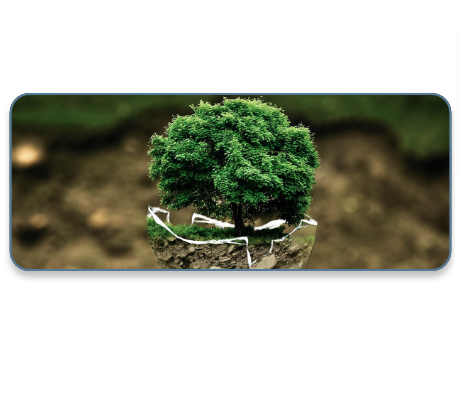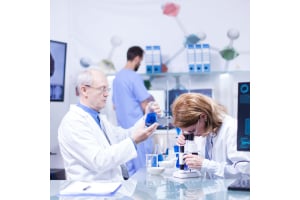Ecofriendly filtration equipment: 4 ways to make your lab more sustainable in 2019

As scientists and as a society, we have become increasingly aware of the negative impact of human’s activities on the environment – from plastic and other waste accumulation to ever-rising global greenhouse gas emissions. Many of us have tried to change individual habits to reduce our impact, but it’s not always easy to enact these changes in the workplace. Sure, we can all remember our own grocery bags and reusable water bottles, but what can we do to be more sustainable in the lab?
In 2015, Nature estimated 5.5 million tons of plastic waste were being produced from bioscience laboratories.1 Scientists have the opportunity to offset this waste production simply by modifying everyday lab management and purchasing decisions. Not only will selecting reusable lab equipment help lessen lab waste, labs also save money in the long run by reducing their consumables budget.
At Sterlitech, we make an effort to reduce the negative impact of lab activities by recommending some alternatives whenever appropriate:
1. Instead of using disposable syringe filters, consider using membrane disc filters and a reusable stainless steel or plastic filter holder if possible. These filter holders are ideal for HPLC sample preparation and small-volume fluid clarification and will reduce the number of syringe filters disposed.
|
|
|
|
2. Minimize packaging and shipping footprint by purchasing in large quantities. If you do need to utilize disposable syringe filters, for instance for sterile application, you can buy these in bulk. Sterlitech offers pack sizes up to 1000 for our syringe filters.
3. Benefit from the long life of glass and sturdy plastic filter holders for vacuum filtration. Example applications: beverage clarification and water bioburden testing.
|
|
|
4. Consider opting for a durable, reusable container for biological fluid waste, solvent, and other liquid collection and storage. We offer vacuum-stable polypropylene bottles and a myriad of autoclavable carboys with spigots for easy dispensing.
|
|
|
Responsible Production and Consumption is also one of the Sustainable Development Goals for 2030 laid out by the United Nations.2 Our industry has an opportunity to contribute to meeting these goals, and Sterlitech’s mission is to support and reinforce the efforts of the s
cientists we work with. If you’re interested in our ecofriendly product selection, we encourage you to download a copy of our online catalog (our way of trying to save a few trees).
References:
- Urbina, M., Watts, A. and Reardon, E. (2015). Labs should cut plastic waste too. Nature, 528(7583), pp.479-479.
- United Nations Sustainable Development. (2019). About the Sustainable Development Goals - United Nations Sustainable Development. [online] Available at: https://www.un.org/sustainabledevelopment/sustainable-development-goals/.
- Most Viewed Blog Articles (5)
- Company News (285)
- Emerging Technologies (64)
- Microbiology and Life Science News (93)
- Water and Fluid Separation News (97)
- Filtration Resources (93)
- Product News (19)


![Join Sterlitech at BIO 2024 [Booth #5558]: Exploring the Future of Biotechnology](https://www.sterlitech.com/media/blog/cache/300x200/magefan_blog/b4.jpeg)



